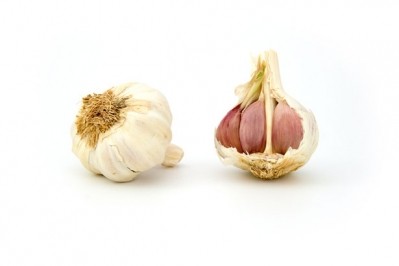CoQ10 and vitamin B6 levels linked to lower artery disease risk

Patients with coronary artery disease – a leading cause of death worldwide – were found to have low levels of the nutrients, and additional research is needed to test if supplementation would be appropriate for people with the disease.
“With respect to the relationship between coenzyme Q10 and vitamin B-6 status and the risk of CAD, the present results showed that a higher level of coenzyme Q10 (at least 516.0 nmol/L) or vitamin B-6 (at least 59.7 nmol/L) was significantly associated with a lower risk of CAD,” wrote the researchers.
CoQ10 & B6
CoQ10 – or coenzyme Q10 plays a vital role in the production of chemical energy in mitochondria – the 'power plants' of the cell – by participating in the production of adenosince triphosphate (ATP), the body's co-called 'energy currency'.
It has been studied for its role in cognitive health, heart health, and anti-aging (in oral and topical formulations). It has also been shown to benefit those suffering from angina, heart attack and hypertension.
Vitamin B6 is a water-soluble nutrient found in foods such as meat, whole grain products, vegetables, bananas and nuts.
Study details
Taiwanese researchers performed a case-control study involving 45 people with CAD and 87 healthy individuals, respectively. Blood levels of CoQ10 and B6(pyridoxal 5’-phosphate) were measured, and the CAD patients were found to have significantly lower levels of both nutrients, compared with the control group.
Both CoQ10 and B6 levels were associated with a reduced risk of CAD, but the B6 link lost statistical significance after accounting for other variables.
“Age is known to be an independent risk factor for CAD, and the patients suffering from CAD may experience losses of coenzyme Q10 because they are under higher oxidative stress due to aging and disease,” wrote the researchers.
“Therefore, it is beneficial to administer coenzyme Q10 to CAD patients to reduce oxidative stress and increase the activities of antioxidant enzymes.”
The researchers also said they agreed with other researchers who suggested that B6 supplements also be provided to people with CAD.
“Vitamin B-6 may not only encourage better endogenous synthesis of coenzyme Q10 but also decrease the homocysteine concentration, which is particularly notable because homocysteine concentration was unchanged after coenzyme Q10 supplementation,” they added.
Source: Nutrition Research
Published online ahead of print, doi: 10.1016/j.nutres.2012.09.003
“A significant correlation between the plasma levels of coenzyme Q10 and vitamin B-6 and a reduced risk of coronary artery disease”
Authors: B-J. Lee, C-H. Yen, H-C. Hsu, J-Y. Lin, S. Hsia, P-T. Lin
















